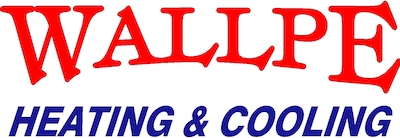
We spend lots of time inside. As a matter of fact, the Environmental Protection Agency (EPA) has approximated being inside comprises 90% of our days. Having said that, the EPA also says your indoor air can be three to five times dirtier than outdoors.
That’s because our residences are securely sealed to boost energy efficiency. While this is good for your utility expenses, it’s not so good if you’re a part of the 40% of the population with respiratory allergies.
When outdoors ventilation is insufficient, pollutants such as dust and volatile organic compounds (VOCs) might get stuck. Consequently, these pollutants can worsen your allergies.
You can enhance your indoor air quality with clean air and regular housework and vacuuming. But if you’re still having problems with symptoms when you’re at your house, an air purifier could be able to provide relief.
While it can’t eliminate pollutants that have gotten trapped in your furniture or carpet, it could help purify the air circulating around your residence.
And air purification has also been scientifically verified to help lower some allergic symptoms, according to the American College of Allergy, Asthma and Immunology. It may also be helpful if you or a family member has lung issues, like emphysema or COPD.
There are two kinds, a portable air purifier or a whole-home air purifier. We’ll discuss the distinctions so you can learn what’s right for your home.
Whole-House Air Purifier vs. Portable Air Purifiers
A portable air purifier is for a single room. A whole-house air purifier accompanies your heating and cooling system to treat your entire residence. Some kinds can work on their own when your HVAC equipment isn’t on.
What’s the Best Air Purifier for Allergies?
Go after a purifier with a High Efficiency Particulate Air (HEPA) filter. HEPA filters are installed in hospitals and provide the best filtration you can get, as they trap 99.97% of particles in the air.
HEPA filters are even more powerful when installed with an ultraviolet (UV) germicidal light. This mighty combination can wipe out dust, dander, pollen and mold, all of which are common allergens. For the best in air purification, evaluate equipment that also has a carbon-based filter to eliminate household smells.
Avoid getting an air purifier that makes ozone, which is the main ingredient in smog. The EPA advises ozone could aggravate respiratory issues, even when emitted at minor amounts.
The Allergy and Asthma Foundation of America has compiled a listing of questions to ask when getting an air purifier.
- What can this purifier take out from the air? What doesn’t it extract?
- What’s its clean air delivery rate? (A better amount means air will be purified more quickly.)
- How regularly does the filter or UV bulb need to be changed]? Can I finish that on my own?
- How much do new filters or bulbs cost?
How to Reduce Seasonal Allergy Symptoms
Want to receive the {top|most excellent|best] performance from your new air purification system? The Mayo Clinic suggests completing other measures to reduce your exposure to things that can trigger seasonal allergies.
- Stay in your home and keep windows and doors sealed when pollen counts are elevated.
- Have other family members cut the lawn or pull weeds, since these jobs can irritate symptoms. If you have to do these jobs yourself, you might want to consider wearing a pollen mask. You should also shower right away and put on new clothes once you’re completed.
- Avoid stringing up laundry outside.
- Run your air conditioner while at home or while driving. Consider installing a high efficiency air filter in your home’s heating and cooling system.
- Equalize your residence’s humidity percentage with a whole-house dehumidifier.
- Hardwood, tile or linoleum are the suggested flooring kinds for reducing indoor allergens. If your home has carpet, use a HEPA filter on your vacuum cleaner.
Let Our Pros Manage Your Indoor Air Quality Needs
Ready to move forward with getting a whole-house air purifier? Give our specialists a call at 812-663-7252 or contact us online to get an appointment. We’ll help you locate the ideal equipment for your house and budget.
